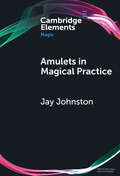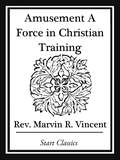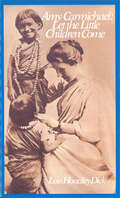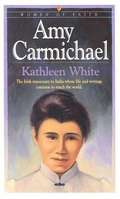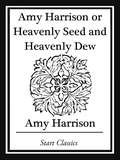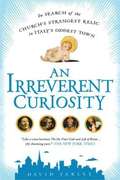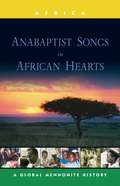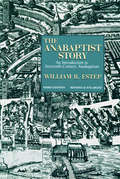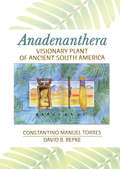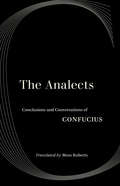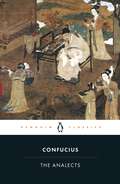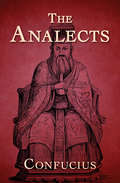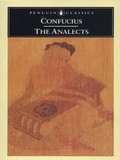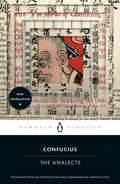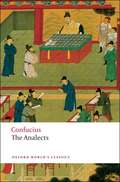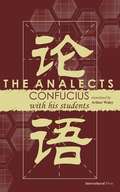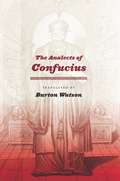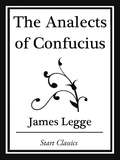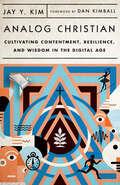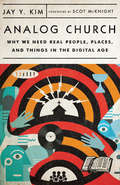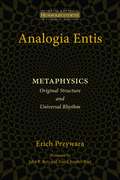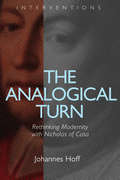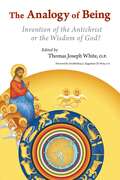- Table View
- List View
Amulets in Magical Practice (Elements in Magic)
by Jay JohnstonThis Element takes as its remit the production and use of amulets. The focus will be on amulets with no, or minimal, textual content like those comprising found stone, semi-precious gem and/or animal body parts. That is a material form that is unaccompanied by directive textual inscription. The analysis considers this materiality to understand its context of use including ritual and metaphysical operations. Through discussion of selected case studies from British, Celtic, and Scandinavian cultures, it demonstrates the associative range of meaning that enabled the attribution of power/agency to the amuletic object Uniquely, it will consider this material culture from an interdisciplinary perspective, drawing together insights from the disciplines of cultural studies, religious studies, 'folk' studies, archaeology and Scandinavian studies. It develops the concept of 'trans-aniconism' to encapsulates an amulet's temporal relations and develops the proposition of 'landscape amulets.'
Amusement A Force in Christian Training
by Marvin R. VincentA collection of essays and sermons by the Pastor of the First Presbyterian Church, Troy, N.Y. first published in book form in 1867.
Amy Carmichael: Let the Little Children Come
by Lois Hoadley DickArriving in India, Amy Carmichael sees little children married to pagan priests for temple prostitution. Amy rescues these children and provides a safe, healthy home for them.
Amy Carmichael: Let the Little Children Come
by Lois Hoadley DickArriving in India, Amy Carmichael sees little children married to pagan priests for temple prostitution. Amy rescues these children and provides a safe, healthy home for them.
Amy Carmichael (Women of Faith Series)
by Mary E. BaldwinBiography of the famous missionary to India whose main mission was to rescue children used in Temple worship and bring them to a knowledge of Jesus Christ.
Amy Harrison or Heavenly Seed and Heavenly Dew
by Amy Harrison"Amy Harrison or Heavenly Seed and Heavenly Dew" is a religious text written in 1881 by Amy Harrison.
AN Irreverent Curiosity
by David FarleyRead David Farley's posts on the Penguin Blog.A tour through the centuries and through a bizarre Italian town in search of an unbelievable relic: the foreskin of Jesus Christ In December 1983, a priest in the Italian hill town of Calcata shared shocking news with his congregation: the pride of their town, the foreskin of Jesus, had been stolen. Some postulated that it had been stolen by Satanists. Some said the priest himself was to blame. Some even pointed their fingers at the Vatican. In 2006, travel writer David Farley moved to Calcata, determined to find the missing foreskin, or at least find out the truth behind its disappearance. Farley recounts how the relic passed from Charlemagne to the papacy to a marauding sixteenth-century German solider before finally ending up in Calcata, where miracles occurred that made the sleepy town a major pilgrimage destination. Blending history, travel, and perhaps the oddest story in Christian lore, An Irreverent Curiosity is a weird and wonderful tale of conspiracy and misadventure.
Anabaptist Songs in African Hearts: A Global Mennonite History (Global Mennonite History: Asia Ser.)
by John LappWhen church histories of Africa have been written, they've usually been done by Westerners. These writers have typically been missionaries or relief workers; their analyses and conclusions have reflected those perspectives. This book -- by contrast -- is written by Africans. Each writer is an African church leader or pastor, and they write about the emergence and development of the Mennonite and Brethren in Christ churches in the countries from which they come. "The story of God's work in Africa did not begin with the arrival of the missionaries, but rather -- from the African perspective -- their arrival continued, reinterpreted and re-shaped an ancient story," begins this honest collection. Themes of the churches claiming their particular expressions of faith, of achieving self-reliance, of coping with difficult governments, of discovering their gifts despite their material poverty, thread through the book. Anabaptist Songs in African Hearts is the third edition of the first volume in the Global Mennonite History Series.
The Anabaptist Story: An Introduction to Sixteenth-Century Anabaptism
by William R. EstepFour hundred seventy years ago the Anabaptist movement was launched with the inauguration of believer's baptism and the formation of the first congregation of the Swiss Brethren in Zurich, Switzerland. This standard introduction to the history of Anabaptism by noted church historian William R. Estep offers a vivid chronicle of the rise and spread of teachings and heritage of this important stream in Christianity.This third edition of The Anabaptist Story has been substantially revised and enlarged to take into account the numerous Anabaptist sources that have come to light in the last half-century as well as the significant number of monographs and other scholarly works on Anabaptist themes that have recently appeared. Estep challenges a number of assumptions held by contemporary historians and offers fresh insights into the Anabaptist movement.
Anadenanthera: Visionary Plant of Ancient South America
by Constantino M Torres David B RepkeA multidisciplinary study of pre-Columbian South America-centering on the psychoactive plant genus AnadenantheraAs cultures formed and evolved in pre-Columbian South America, Anadenanthera became one of the most widely used shamanic inebriants. Anadenanthera: Visionary Plant of Ancient South America is more than a comprehensive reference on shamanic visionary substances; it is a useful tool for archeologists and pre-Columbian art historians. This thorough book examines the ritual and cultural use of Anadenanthera from prehistory to the present, along with its botany, chemistry, pharmacology, anthropology, and archeology.The earliest evidence for the use of psychoactive plants in South America is provided by remains of seeds and pods recovered from archeological sites four millennia old. Various preparations were derived from it with the intent of being a shamanic inebriant. Inhaled through the nose, smoked in pipes or as cigars, and prepared in fermented drinks, Anadenanthera served a central role in the cultural development of indigenous societies in South America. Anadenanthera: Visionary Plant of Ancient South America explores the full spectrum of information gleaned from research, covering numerous archeological sites in the Andean region, as well as discussing Amazonian shamanic rituals and lore. Analyses of the artistic expressions within the decorations of associated ceremonial paraphernalia such as ritual snuffing tubes and snuff trays are included. The text is richly illustrated with photographs and images of decorated ritual implements, and provides a comprehensive bibliography.Anadenanthera: Visionary Plant of Ancient South America explores: botanical aspects, taxonomy, and geographical distribution of Anadenanthera ethnographical, historical, and traditional aspects of Anadenanthera use chemical and pharmacological investigations of the genus and the various visionary preparations derived from it-with emphasis on the biologically active constituents theories of the mechanisms of action of the active tryptamines and carboline alkaloids comparisons of wood anatomy, morphology, and percentage of alkaloid content evaluation of stylistic and iconographic traitsAnadenanthera: Visionary Plant of Ancient South America is a thorough, useful resource for archeologists, anthropologists, chemists, researchers, pre-Columbian art historians, and any layperson interested in pre-Columbian art, archeology, or visionary plants.
The Analects: Conclusions and Conversations of Confucius
by ConfuciusFor anyone interested in China—its past, its present, and its future—the Analects (Lunyu) is a must-read. This new translation by renowned East Asian scholar Moss Roberts will offer a fresh interpretation of this classic work, sharpening and clarifying its positions on ethics, politics, and social organization. While no new edition of the Analects will wholly transform our understanding of Confucius’s teachings, Roberts’s translation attends to the many nuances in the text that are often overlooked, allowing readers a richer understanding of Confucius’ historic and heroic attempt to restore order and morality to government. This edition of the Analects features a critical introduction by the translator as well as notes on key terms and historical figures, a topical index, and suggestions for further reading in recent English and Chinese scholarship to extend the rich contextual background for his translation. This ambitious new edition of the Analects will enhance the understanding of specialists and newcomers to Confucius alike.
The Analects: The Books Of Confucian Wisdom - Complete (hardcover)
by Confucius'The Master said, "If a man sets his heart on benevolence, he will be free from evil"'The Analects are a collection of Confucius's sayings brought together by his pupils shortly after his death in 497 BC. Together they express a philosophy, or a moral code, by which Confucius believed everyone should live. Upholding the ideals of wisdom, self-knowledge, courage and love of one's fellow man, he argued that the pursuit of virtue should be every individual's supreme goal. And, while following the Way, or the truth, might not result in immediate or material gain, Confucius showed that it could nevertheless bring its own powerful and lasting spiritual rewards.Translated with an Introduction and Notes by D. C. Lau
The Analects: Or The Conversations Of Confucius With His Disciples And Certain Others, (Ideas For Life Ser.)
by ConfuciusA classic compendium of spiritual wisdom from ancient China&’s greatest philosopher.The Analects present the detailed code of morality, behavior, and belief espoused by Confucius. Stressing virtue, integrity, and respect within families and communities, Confucius explains how certain principles of living can apply to all aspects of society from education to political systems. One of the most influential books in world history and a foundational text in the study of ethics, sociology, and philosophy, The Analects elucidates a path for an honorable and rewarding life. More than two millennia after it was written, this collection of wisdom from ancient China&’s best-known thinker is still admired and studied today.
The Analects
by Confucius‘The Master said, “If a man sets his heart on benevolence, he will be free from evil”’ The Analects are a collection of Confucius’s sayings brought together by his pupils shortly after his death in 497 BC. Together they express a philosophy, or a moral code, by which Confucius, one of the most humane thinkers of all time, believed everyone should live. Upholding the ideals of wisdom, self-knowledge, courage and love of one’s fellow man, he argued that the pursuit of virtue should be every individual’s supreme goal. And, while following the Way, or the truth, might not result in immediate or material gain, Confucius showed that it could nevertheless bring its own powerful and lasting spiritual rewards. This edition contains a detailed introduction exploring the concepts of the original work, a bibliography and glossary and appendices on Confucius himself, The Analects and the disciples who compiled them. .
The Analects
by Confucius Annping ChinOne of the most influential books in human history, in a revelatory new translationThe book that the Chinese have returned to repeatedly for reflection, renewal, and validation of their own views, The Analects was compiled by the disciples of Confucius, China's earliest teacher and moral thinker, from his remarks and his conversations with rulers, political operators, and people he happened to meet. It laid the foundation of the Chinese idea of what is moral and what is politically viable, what is a good government and who has integrity. Featuring both the English and Chinese texts, this new translation, by one of the pre-eminent scholars of Confucius, draws on the most recent excavated manuscripts and centuries of scholarship to illuminate the historical context of Confucius' teachings, explaining who the many local figures referenced are, and navigating a rich tradition of historical commentaries. The result is a map of Confucian thought that brings us as close as possible to experiencing Confucius as his followers might have 2,500 years ago.
The Analects
by Confucius D. C. LauThe Analects of Confucius is a collection of aphorisms and historical anecdotes embodying the basic values of the Confucian tradition: learning, morality, ritual decorum, and filial piety.
The Analects: Oxford World's Classics
by Raymond Dawson Confucius<p>Few individuals have shaped their country's civilization more profoundly than the Master Kong, better-known as Confucius (551-479 BC). His sayings and those of his disciples form the foundation of a distinct social, ethical, and intellectual system. They have retained their freshness and vigor throughout the two and a half millennia of their currency, and are still admired even in today's China. <p>This lively new translation offers clear explanatory notes by one of the foremost scholars of classical Chinese, providing an ideal introduction to the Analects for readers who have no previous knowledge of the Chinese language and philosophical traditions.</p>
The Analects
by Confucius Arthur WaleyTogether they express a philosophy, or a moral code, by which Confucius, one of the most humane thinkers of all time, believed everyone should live. Upholding the ideals of wisdom, self-knowledge, courage and love of one's fellow man, he argued that the pursuit of virtue should be every individual's supreme goal.
The Analects of Confucius (Translations from the Asian Classics)
by Burton WatsonCompiled by disciples of Confucius in the centuries following his death in 479 B.C.E., The Analects of Confucius is a collection of aphorisms and historical anecdotes embodying the basic values of the Confucian tradition: learning, morality, ritual decorum, and filial piety. Reflecting the model eras of Chinese antiquity, the Analects offers valuable insights into successful governance and the ideal organization of society. <P><P>Filled with humor and sarcasm, it reads like a casual conversation between teacher and student, emphasizing the role of the individual in the attainment of knowledge and the value of using historical events and people to illuminate moral and political concepts. Confucius's teachings focus on cultural and peaceful pursuits and the characteristics of benevolent and culturally distinguished government. He also discusses ancestor worship and other rites performed for the spirits of the dead. The single most influential philosophical work in all of Chinese history, The Analects of Confucius has shaped the thought and customs of China and neighboring countries for centuries. Burton Watson's concise translation uses the pinyin romanization system and keeps explanatory notes to a minimum, yet his intimate knowledge of the Confucian tradition and precise attention to linguistic detail capture the original text's elegance, cogency, and wit.
An Analects of Confucius (Start Classics)
by James LeggeWith a translation, critical and exegetical notes, prolegomena, and copious indexes by James Legge.
Analog Christian: Cultivating Contentment, Resilience, and Wisdom in the Digital Age
by Jay Y. KimThe digital age is in the business of commodifying our attention.Analog ChurchAnalog Christian
Analog Church: Why We Need Real People, Places, and Things in the Digital Age
by Jay Y. Kim2020 The Gospel Coalition Book Award - First-Time Author Award
Analogia Entis: Original Structure and Universal Rhythm (Ressourcement: Retrieval and Renewal in Catholic Thought (RRRCT))
by Erich PrzywaraAlthough Erich Przywara (1889–1972) was one of the preeminent Catholic theologians of his time and a profound influence on such people as Hans Urs von Balthasar and Joseph Ratzinger, he has remained virtually unknown in North America. This volume includes Przywara’s groundbreaking Analogia Entis, originally published in 1932, and his subsequent essays on the concept analogia entis -- the analogy between God and creation -- which has currency in philosophical and theological circles today.
The Analogical Turn: Rethinking Modernity with Nicholas of Cusa (Interventions)
by Johannes HoffRecovers a 15th-century thinker’s original insights for theology and philosophy todaySocieties today, says Johannes Hoff, are characterized by their inability to reconcile seemingly black-and-white scientific rationality with the ambiguity of postmodern pop culture. In the face of this crisis, his book The Analogical Turn recovers the fifteenth-century thinker Nicholas of Cusa’s alternative vision of modernity to develop a fresh perspective on the challenges of our time.In contrast to his mainstream contemporaries, Cusa’s appreciation of individuality, creativity, and scientific precision was deeply rooted in the analogical rationality of the Middle Ages. He revived and transformed the tradition of scientific realism in a manner that now, retrospectively, offers new insights into the “completely ordinary chaos” of postmodern everyday life.Hoff’s original study offers a new vision of the history of modernity and the related secularization narrative, a deconstruction of the basic assumptions of postmodernism, and an unfolding of a liturgically grounded concept of common-sense realism.
The Analogy Of Being: Invention Of The Antichrist Or Wisdom Of God?
by Thomas White Thomas JosephExplores whether human minds can truly discover God without Christ Does all knowledge of God come through Christ alone, or can human beings discover truths about God philosophically? The Analogy of Being assembles essays by expert Catholic, Protestant and Orthodox theologians to examine the relationship between divine revelation in the person of Jesus Christ and the philosophical capacities of natural reason. These essays were inspired by the lively, decades-long debate between Karl Barth and Erich Przywara, which was first sparked in 1932 when Barth wrote that the use of natural theology in Roman Catholic thinking was the "invention of the anti-Christ." The contributors to The Analogy of Being analyze and reflect on both sides of Barth and Przywara's spirited discourse, offering diverse responses to a controversy reaching to the very core of Christian faith and theology. Contributors: John R. Betz Martin Bieler Peter Casarella J. Augustine Di Noia Michael Hanby David Bentley Hart Reinhard Hütter Bruce D. Marshall Bruce L. McCormack Kenneth Oakes Richard Schenk John Webster Thomas Joseph White
